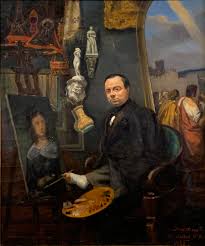Louis Joseph César Ducornet is a figure that may not be widely known today, but his life and contributions are an important part of the tapestry of European history in the 18th and early 19th centuries. While information about Ducornet may be sparse, understanding the context of his time helps shed light on his role and significance. This article explores the life and legacy of Louis Joseph César Ducornet, focusing on what is known about his biography and impact.
Early Life and Background
louis joseph césar ducornet was born in France, likely in the late 18th century, during a period of significant social and political change. France was on the cusp of the French Revolution, a time of upheaval that would alter the trajectory of the country and its aristocracy. Ducornet’s early years would have been shaped by the volatile political environment, which could explain his eventual involvement in military and administrative affairs.
Like many individuals from aristocratic or noble families, Ducornet would have been raised with an education that emphasized the classics, military strategy, and possibly governance. His aristocratic roots may have positioned him within the social class that was eventually targeted by revolutionary movements, leading many to question the privileges of the nobility.
Military Career and Involvement in the Napoleonic Wars
While specific records on Ducornet’s early life remain obscure, it is possible that he was involved in the French military, a common path for young men of noble birth during this period. The Napoleonic Wars (1803-1815) were a defining event of the early 19th century in Europe, and many individuals from across the continent participated in or were affected by these conflicts.
Ducornet may have served in Napoleon Bonaparte’s army, which could have given him a notable military career. The era saw the rise of many military leaders who would later be remembered for their strategic prowess or their role in shaping European geopolitics.
Political Involvement and Administrative Roles
It is also possible that Ducornet held political or administrative roles in the turbulent times following the French Revolution and during Napoleon’s rule. The French Revolution, which began in 1789, led to the rise of new forms of governance, including the Napoleonic Empire. During this period, many former royalists and noble families found themselves in complicated positions, sometimes serving under the new regime in hopes of maintaining their status or ensuring stability.
Whether as a military officer, administrator, or diplomat, Louis Joseph César Ducornet would have been impacted by these shifts, contributing to the political and military changes of the time. These roles would have required him to navigate complex allegiances and the delicate balance between the old monarchy and the new order under Napoleon.
Legacy and Influence
While detailed records of Louis Joseph César Ducornet’s life remain elusive, his existence serves as a reminder of the many individuals who played lesser-known yet important roles during an era of monumental change. Figures like Ducornet were often overshadowed by more famous names in history, yet they contributed to the rich and complex social fabric of their time. Whether in military service, politics, or the broader cultural shifts of the Napoleonic period, their lives reflected the transition from feudal systems to modern nation-states.
conclusion,
the story of louis joseph césar ducornet, though largely unrecorded in popular history, offers an interesting glimpse into the world of the French nobility and military during the tumultuous years of the late 18th and early 19th centuries. His name, tied to a period of great upheaval, serves as a reminder of the many unsung individuals who shaped the course of European history. While much of his life remains a mystery, the backdrop of his time continues to fascinate historians and history enthusiasts alike.


